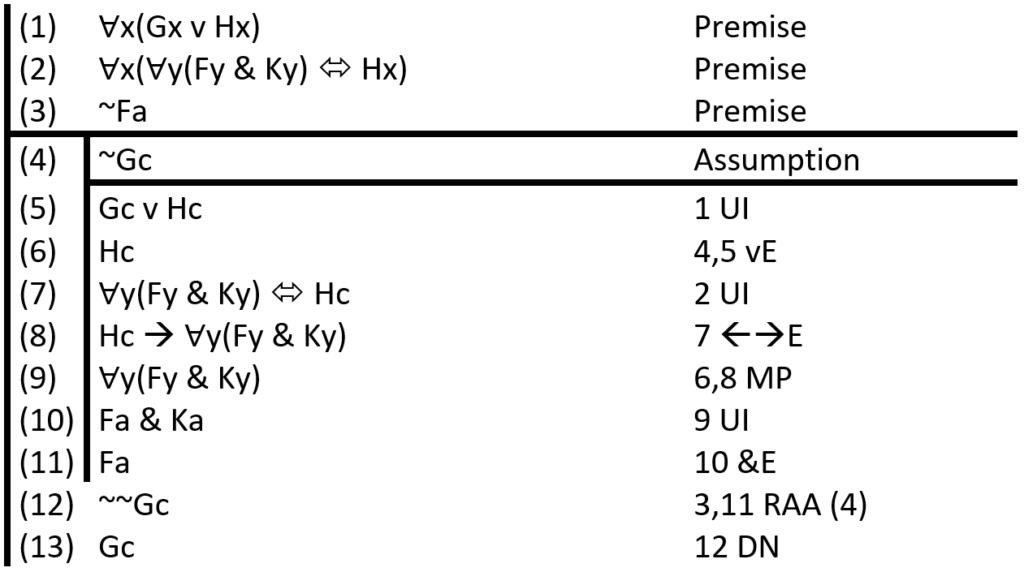Answers for More First Order Logic Questions
For each problem below, provide a derivation of the conclusion from the premises using the rules of natural deduction (Simp, Adj, MTP, Add, MP, MT, DN, BI, BE, CI, and RAA) and the four rules in first order logic (UI, EG, UD and EI).
- ∃xFx & ∀xGx, ∀x(Fx –> Hx) ∴ ∃x(Gx & Hx)
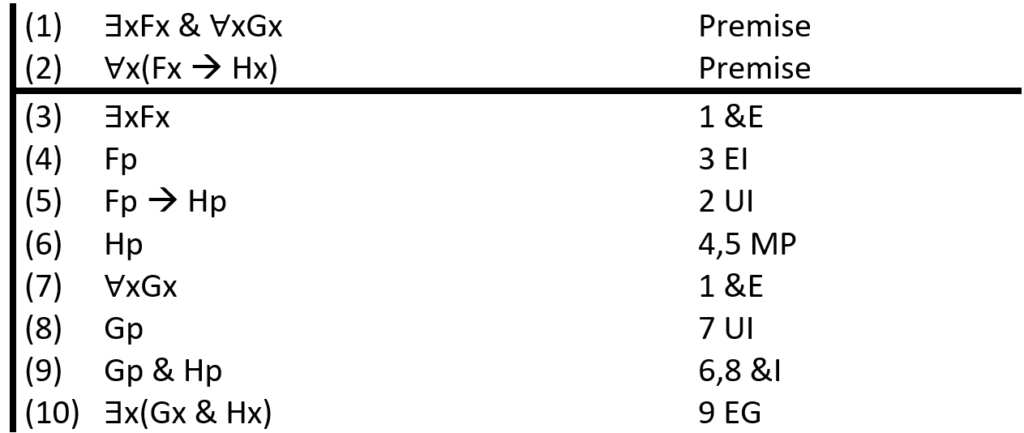
- ∀x(Fx & Gx), Ga –> Hb ∴ Fc & Hb
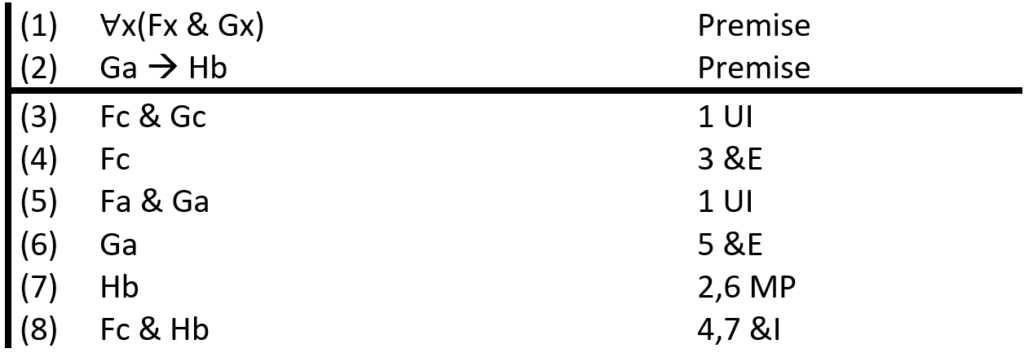
- ∃xFx –> Ha, Fb, ∀x(Gx <–> Hx) ∴ ∃yGy
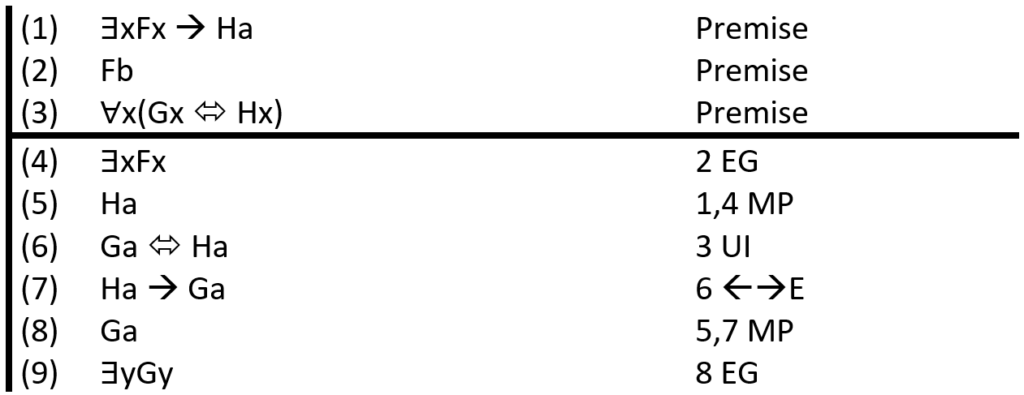
- ∀x∀y(Fxy <–> Gxy), ∀x∃yGxy, ∃x∃yFxy –> Hbc ∴ Hbc
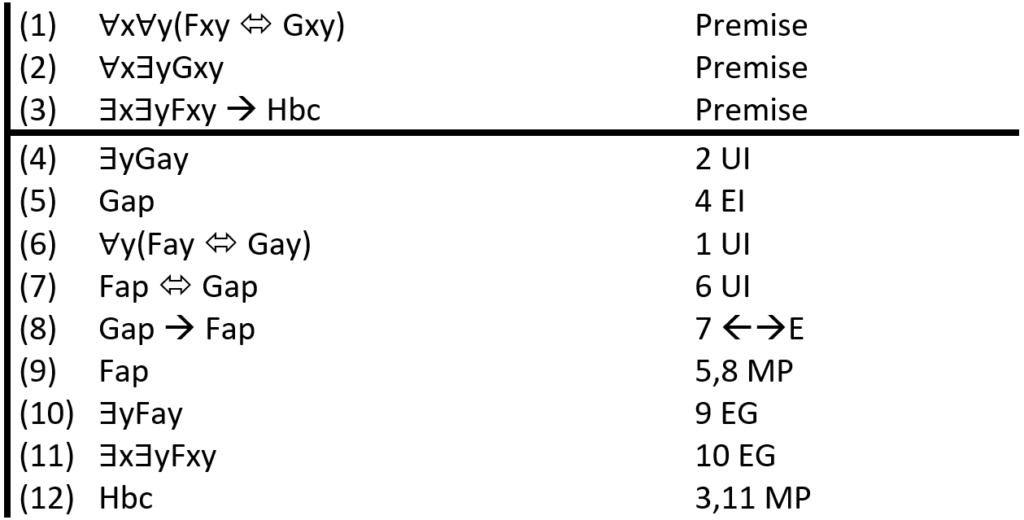
- ∀x(Fx v Gx), ~Ga & ∀xHx, ∃x(Fx & Hx) –> Kc ∴ ∃xKx
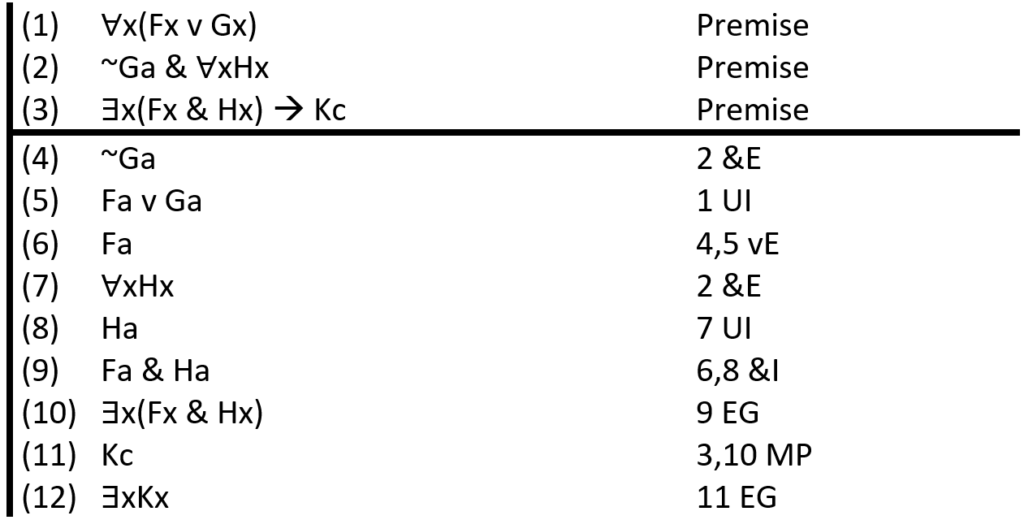
- ∀x∃y(Fxy –> Gy), ∀x~Gx ∴ ∃x(~Fcx v Hx)
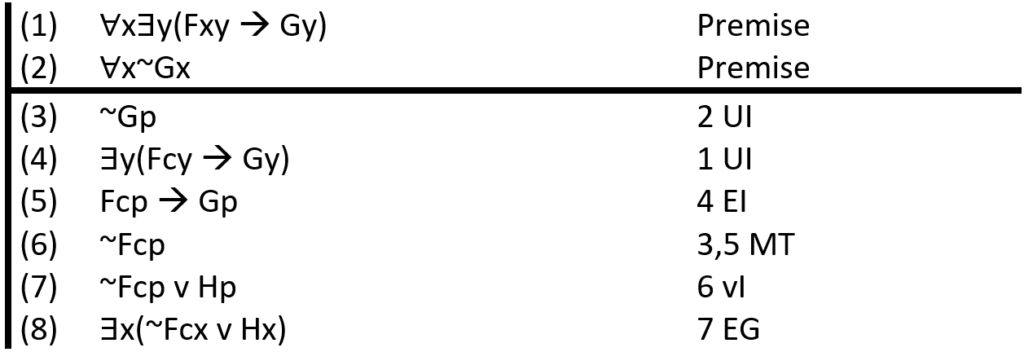
- ∀x(∃yFy –> (Gx v Hx)), Fc & ~Ha ∴ ∃x(Gx v Kx)
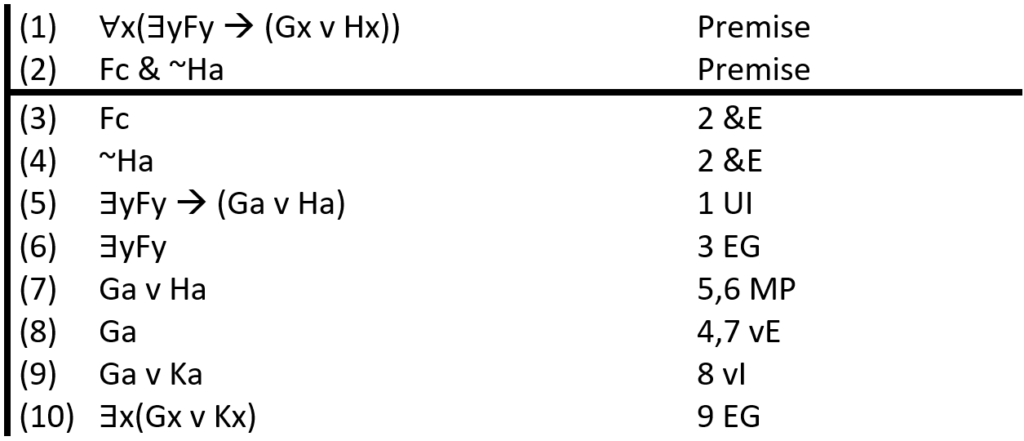
- ∀x(Fx –> (Gx v ~∃yHy)), ∃xGx –> Ka, Hb ∴ ∀x(Fx –> ∃yKy)
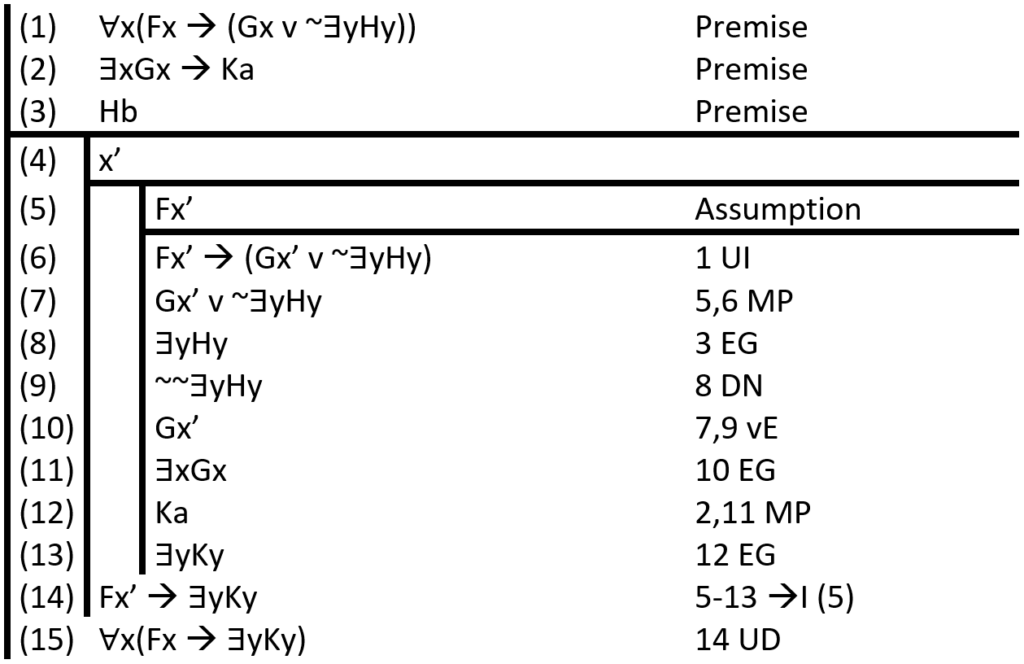
- ~(∀x∀y(Fx –> Gy)) –> ~∃xHx, ∀x(Fx & Hx) ∴ (Hc & Gd) v ∃x(Kx & Fx)
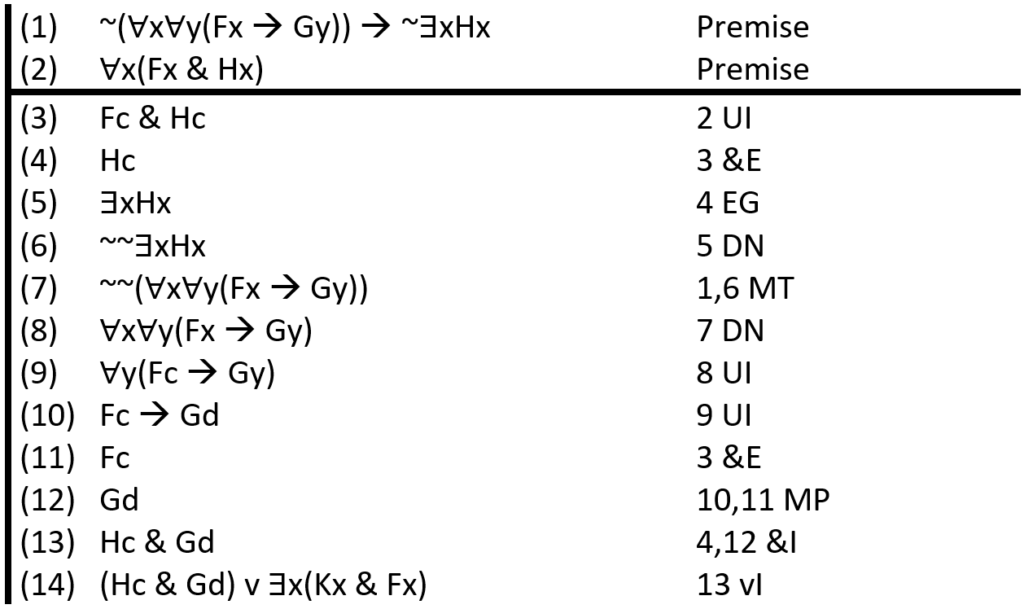
- ∀x(Gx v Hx), ∀x(∀y(Fy & Ky) <–> Hx), ~Fa ∴ Gc
